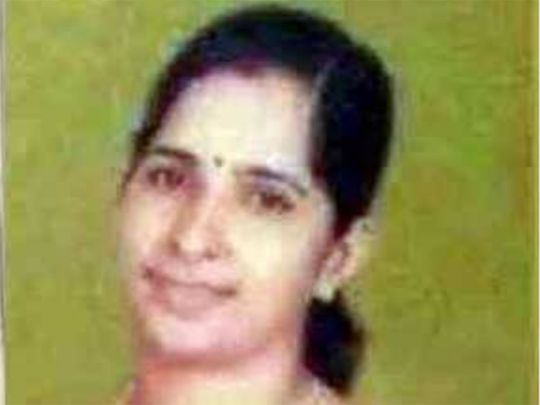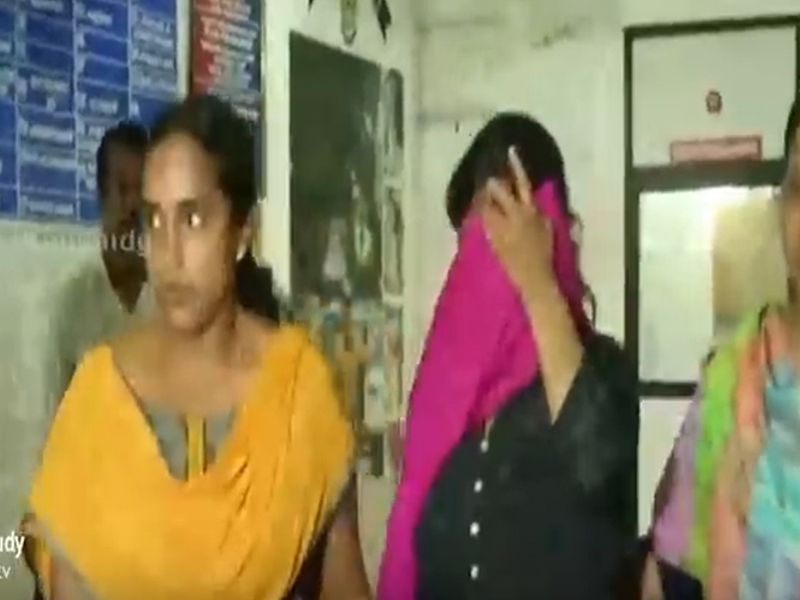
“She [Jolly Joseph] seems like a sociopath.”
Explained Dr Thoraiya Kanafani, clinical psychologist and clinical director, who works on forensic psychology cases at the Dubai-based Human Relations Institute and Clinics, when Gulf News spoke to her about the accused Jolly Joseph in the serial murder case from Kerala, India.
What is a sociopath and are they different from a psychopath?
She said: “Sociopaths are in many ways similar to a psychopath, share a lot of traits such as lack of remorse and guilt… lying and deception, and could be charming, manipulative, narcissistic and dishonest.
“A psychopath gets into more trouble with the law. But, in case of a sociopath, who suffers from anti-social personality disorder, the traits are less severe because they blend in with society, avoid any engagement with the law, and are good at manipulating individuals… they’re good at portraying themselves as a part of society.”
In forensic psychology evaluation there is a term used for female killers of this nature. They are called Black Widow Killers or Black Widow Serial Killers. “This is documented, these are women who have killed husbands or family members for money,” Dr Kanafani said.
Even though male and female psychopaths are similar in their psychopathy, however at times for at least women, they are more prone to emotional outbursts. It is an uncontrolled reaction.

[Sociopaths]... display dis-regulated emotions. They get angry, something triggers them and they don’t know how to react to it. It might remind them of an abusive memory
“They display dis-regulated emotions. They get angry, something triggers them and they don’t know how to react to it. It might remind them of an abusive memory – they will have an immediate extreme reaction. They will say: ‘I want to beat you.’"
So, are sociopaths and psychopaths born different?
“We know that psychopathic and sociopathic brains look different in brain structure… in an MRI or CT scan. There is a reduced connection between the ventromedial pre-frontal cortex responsible for empathy and guilt and the amygdala, which mediates fear and anxiety. That connection is extremely important to differentiate … to understand what we are doing. So, in their case they don’t feel guilt nor can they empathise with what they're doing… they don’t understand why people are making such a big deal out of it.”
Can the signs be detected early? Can something be done?
“More often than not you can see the signs from a young age, such as torture of animals, not feeling guilt or remorse and a lack of empathy.
More often than not you can see the signs from a young age, such as torture of animals, not feeling guilt or remorse and a lack of empathy.
“We cannot study children easily at an early age but we do see a nature and nurture aspect. There is a biological brain structure and function, and nurture that involves neglect, abuse at home and trauma, which play a part.
“You have functional psychopaths such as CEOS, lawyers and surgeons. They have psychopathy but have been raised in an environment that prevented them from going down a path of violence. They become surgeons, lawyers and CEOs because they like the sense of power and control, of life and death in their hands,” Dr Kanafani said.
On some level, for psychopaths in these professions their lack of remorse comes into play. A lawyer with psychopathy will defend a serial killer because he or she would feel less or no remorse.
So, what should parents do in such a case? How do they address it?
She stressed on the need to seek the right help. “Best that parents get professional help. Don’t forget it… don’t ignore it, saying everything will be okay. It needs to be addressed.”
Wrong actions can be punished.
“But, we always focus on positive reinforcement, punishment has to be explained, a valid reason given. They might not understand the impact but they will understand when you tell them that what they do ‘hurts’ someone. They get conditioned.”
In the case of alleged serial killer Jolly Joseph, Dr Kanafani explained: “There might be signs in her history… if I had her case files, I could study that. Was there abuse on the part of the first husband? In her case, you can see that signs would have been there at a young age.”
Media talking about 'split personality disorder'
People are talking about Jolly Joseph suffering from a “split personality disorder”, which Dr Kanafani said is completely wrong.

“We call that Dissociative Identity Disorder, which is complicated. It is a disruption of identity wherein we can see many personality states with significant disconnect….” And that has more to do with how an individual might be dealing with extreme trauma that they have experienced. So, you cannot associate that with sociopathic or psychopathic behaviour.
Wrong labelling of this nature does a disservice to people who might be suffering, which brings us to the issue of mental health.
Mental health conversations
Dr Kanafani talked about the urgent need to talk about mental health in a preventive manner, and to raise awareness.
“We don’t address mental health, we don’t discuss it, don’t tell parents that they must stop mistreating their children, stop neglecting them. We don’t talk about treatment of children with problems. We only talk about it as a way to explain negative behaviour once something bad happens.”








